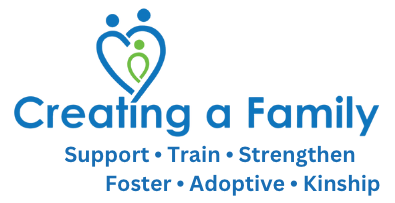Adoption
When Child Welfare IS Involved
Adoption is a legal process that creates a parent-child relationship between people who are not parent and child by birth. Once a child is adopted, that child has the same legal rights as a child born to the family, and the adoptive parent has the same legal duties as a birthparent to care for and raise the child. The relationship changes from grandparent/grandchild (or aunt/niece, cousin/cousin, etc.) to parent/child.
Once a child is in foster care, adoption is one of the options the Department of Social Services (DSS) considers to provide the child with a permanent family if they cannot return home. Before a child can be adopted, they must be “legally free.” This can happen if both parents voluntarily give up their parental rights. It may be possible for the child’s parents to do a Designated Relinquishment, where they agree to give up their parental rights only if grandparents or other kin adopt.
If the parents will not voluntarily give up their rights, DSS requests the Juvenile Court judge to Terminate Parental Rights, commonly called “TPR.” TPR means that the parent permanently loses their right to make decisions for the child and their ability to change or regain custody.

